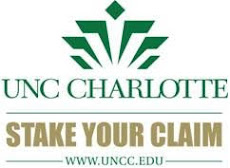By Leanna Pough
Study,
go to class, graduate and land a job — that’s a familiar path to college
students searching for the American dream of prosperity.
As
part of the process, astute college students seek out mentors or participate in
internships to develop career insight. These opportunities can provide valuable
tips on what to expect in the future. But what does it really mean to be a
member of the American workforce?
Levine
Scholar and UNC Charlotte alumnus Austin Halbert sought the answer. The
resulting book, “The American Workday: Tales of Life and Work in the United
States Today,” published in January 2016, shares stories of America’s workers.
It explores how one’s career can affect an individual’s personal life off the
clock, along with misconceptions associated with jobs and class.
Horizons
Expand with Levine Grant
A
native of Shelby, N.C., Halbert attended Crest High School. Growing up in a small
town just west of Charlotte, he was exposed to a working-class population and had
little understanding of how people lived outside of that lifestyle.
 |
| Austin Halbert is completing a year-long Fulbright Fellowship in Sweden |
“When
I became a Levine Scholar, I was given an opportunity to go to school in a
diverse city, to travel and meet people from backgrounds that were foreign to
me,” noted Halbert. “This taught me so much about people whose conditions I
could have only speculated upon before leaving my hometown. As soon as I heard
someone’s story directly from them, I was then able to feel empathy for others
facing similar circumstances.”
To gain a better understanding of how society functions,
Halbert listened to people’s stories and connected them to larger social
trends.
“I believe storytelling is the best way to foster empathy.
When I heard discussions in America becoming increasingly divisive —
politically, economically and socially — I wanted to find a way to inject a
little bit of empathy into the equation. Fortunately, I found many generous
people who were willing to share their stories for this purpose,” Halbert said.
During
a three-year period, he and fellow Levine Scholars Laura Outlaw and Vrushab
Gowda interviewed and photographed 38 diverse workers across occupations. Interviewees
ranged from stock clerks to Fortune 500 executives.
Workers
Have Similar Motivations
“Most of the workers interviewed were from the Charlotte
area, and if they are any indication, the people of Charlotte are an incredibly
resilient, compassionate and hard-working bunch,” Halbert said. “I found that
each person I spoke to had fundamentally similar motivations: to provide for
the people who depended on them, to find pride and dignity through their work
and to find balance between working hard and leading a fulfilled life.”
A member of the Class of 2015, Halbert completed a bachelor’s
degree in management with a concentration in organizational management. He also
earned a minor in economics.
“The American Workday” was funded through a grant from the
Levine Scholars Program, which enabled Halbert to complete the work. The book
is endorsed by the Global Engagement Summit and the Clinton Global Initiative
University. Proceeds from the book, available at www.americanworkday.com
in hardcover and e-book formats, benefit Charlotte Works and
Hired Heroes, organizations working to end unemployment by matching jobless
citizens with workforce-training opportunities.
In September 2015, Halbert began a yearlong
Fulbright graduate research fellowship at Sweden’s University of
Gothenburg School of Business, Economics and
Law. He is studying sustainable development through an assessment of
public-private partnerships. Additionally, he is interviewing government and
business officials in the capital of Stockholm.
Sustainability
Across Sectors
“My mission is to find out how institutions approach social,
economic and environmental sustainability across sectors and to determine what
can be done to further efforts,” explained Halbert. “Sweden is a world leader
in sustainability and innovation, so hopefully these insights can serve as a
lesson for institutions around the world on how to meet the needs of society
while growing strong businesses.”
Interviewees have included ministers and ambassadors for the
Swedish government, as well as top executives at global companies such as
Ericsson, Electrolux, Ikea and H&M.
 The Fulbright program is one of the largest and most
prestigious international exchange programs in the world today. Its main
objective is to increase mutual understanding between the people of the United
States and the citizenry of other nations through the sharing of ideas,
knowledge, skills and individual experiences.
The Fulbright program is one of the largest and most
prestigious international exchange programs in the world today. Its main
objective is to increase mutual understanding between the people of the United
States and the citizenry of other nations through the sharing of ideas,
knowledge, skills and individual experiences.
Recently, Halbert was appointed to the Youth Working Group
for the U.S. National Commission to UNESCO. The 12 American leaders who make up
the group endeavor to engage youth and share UNESCO’s mission of international
peace and universal respect.
“As a new member of the Youth Working Group, I am leading the
creation of the UNESCO Action Coalition, which will pair young activists and
social entrepreneurs with experienced mentors in their fields. The mission is
to connect new and experienced generations of change-makers, while providing
guidance to high-impact projects focused on sustainable development,” Halbert
explained.
With the help of two co-founders he has met while conducting
research in Sweden, Halbert is also planning the launch of a social enterprise
he calls “ImpactEd,” which will empower universities to bring real-world
problem solving into the classroom.
Leanna Pough is communications coordinator in
the Office of Public Relations.





